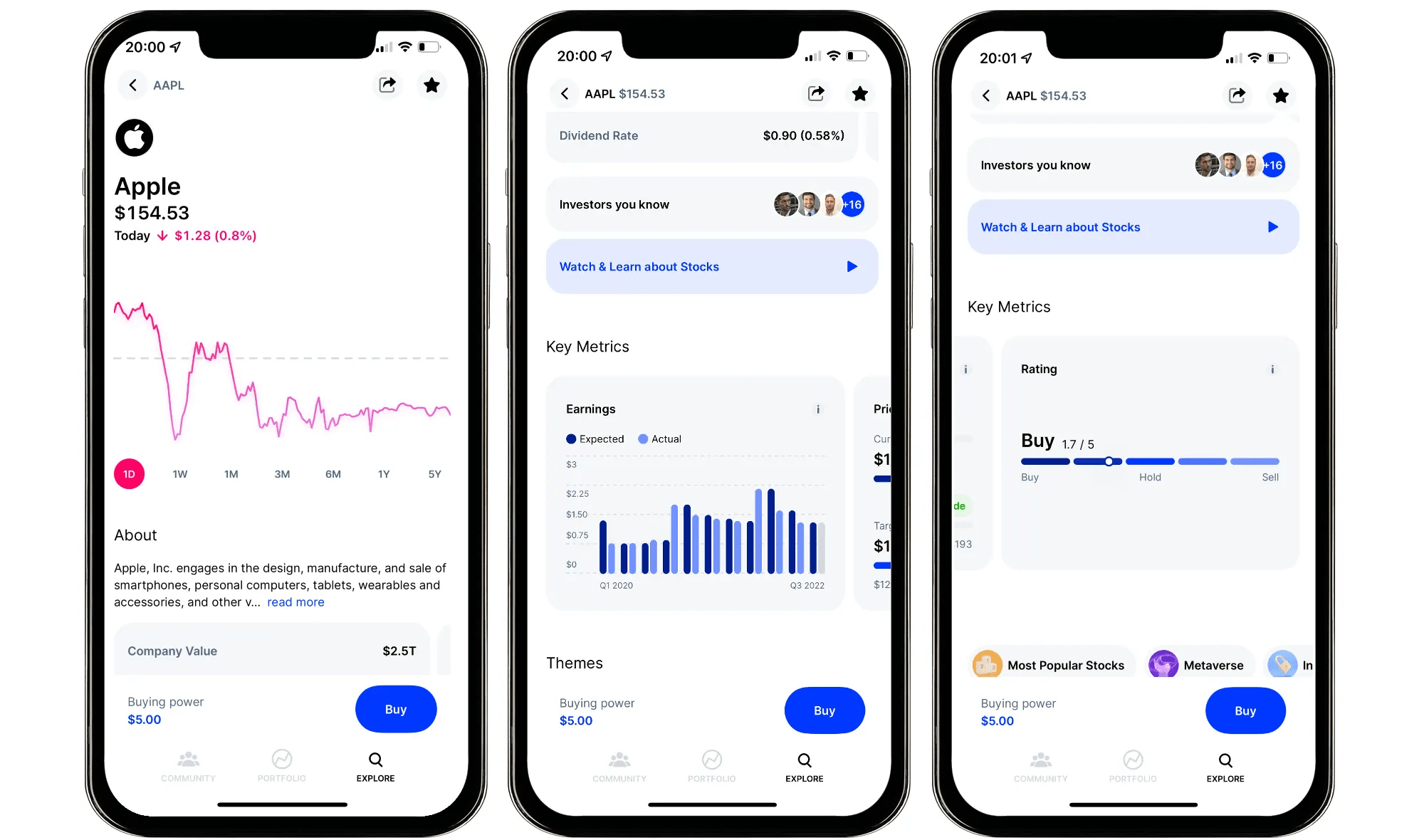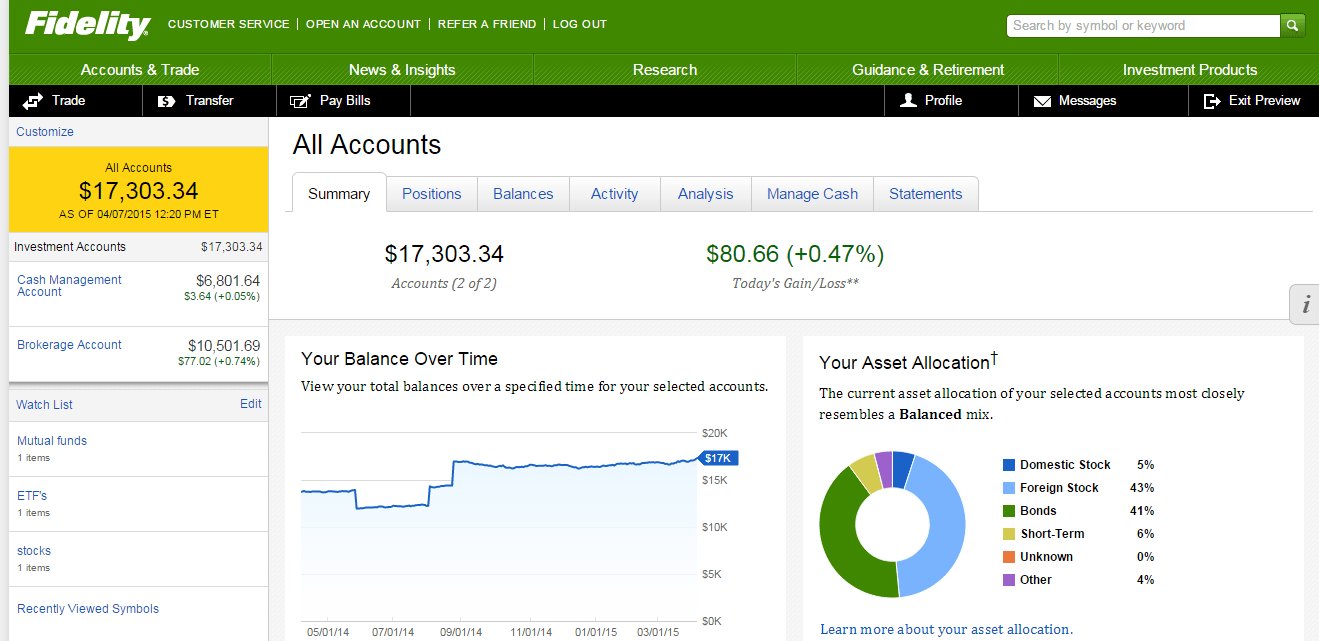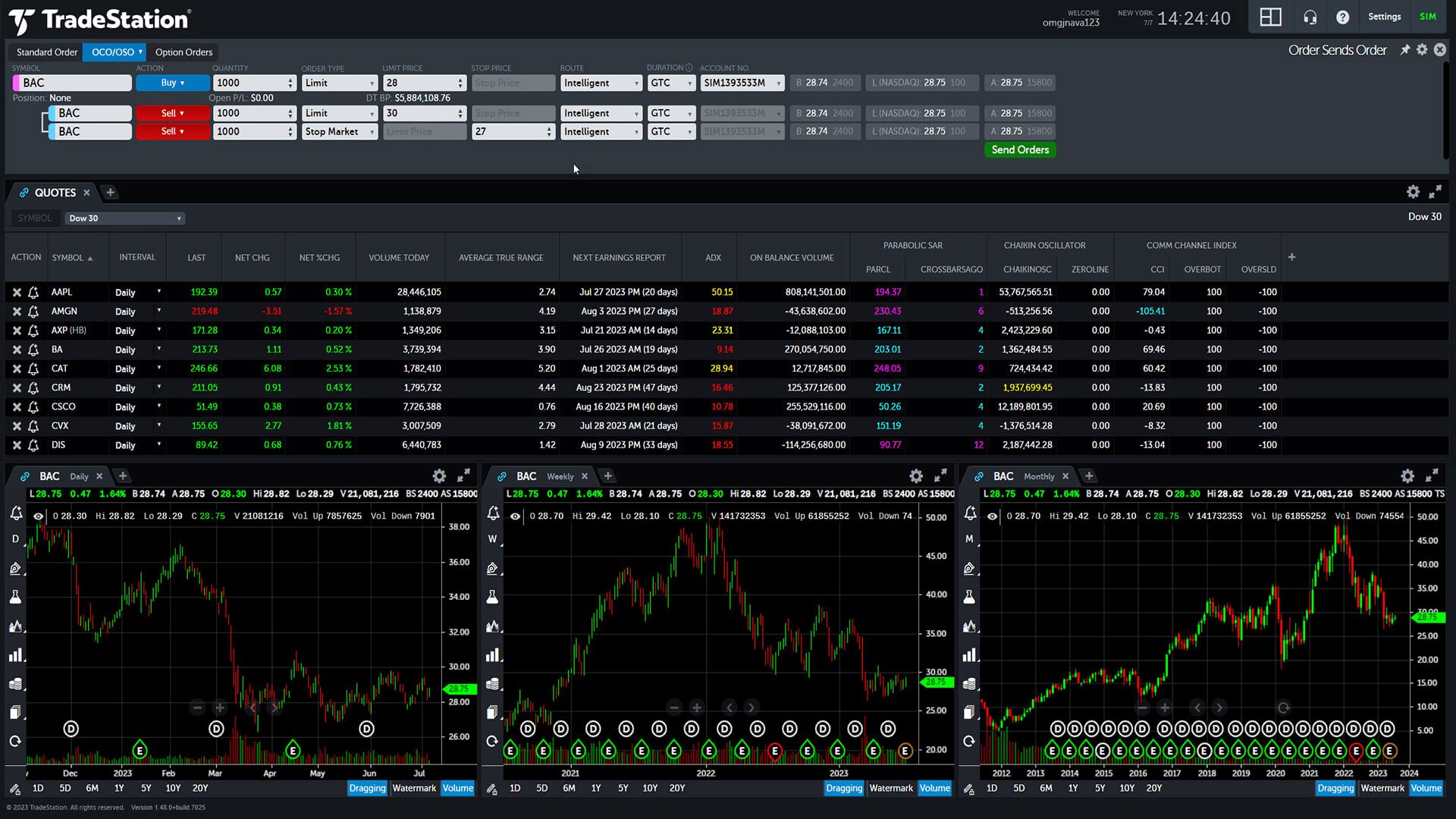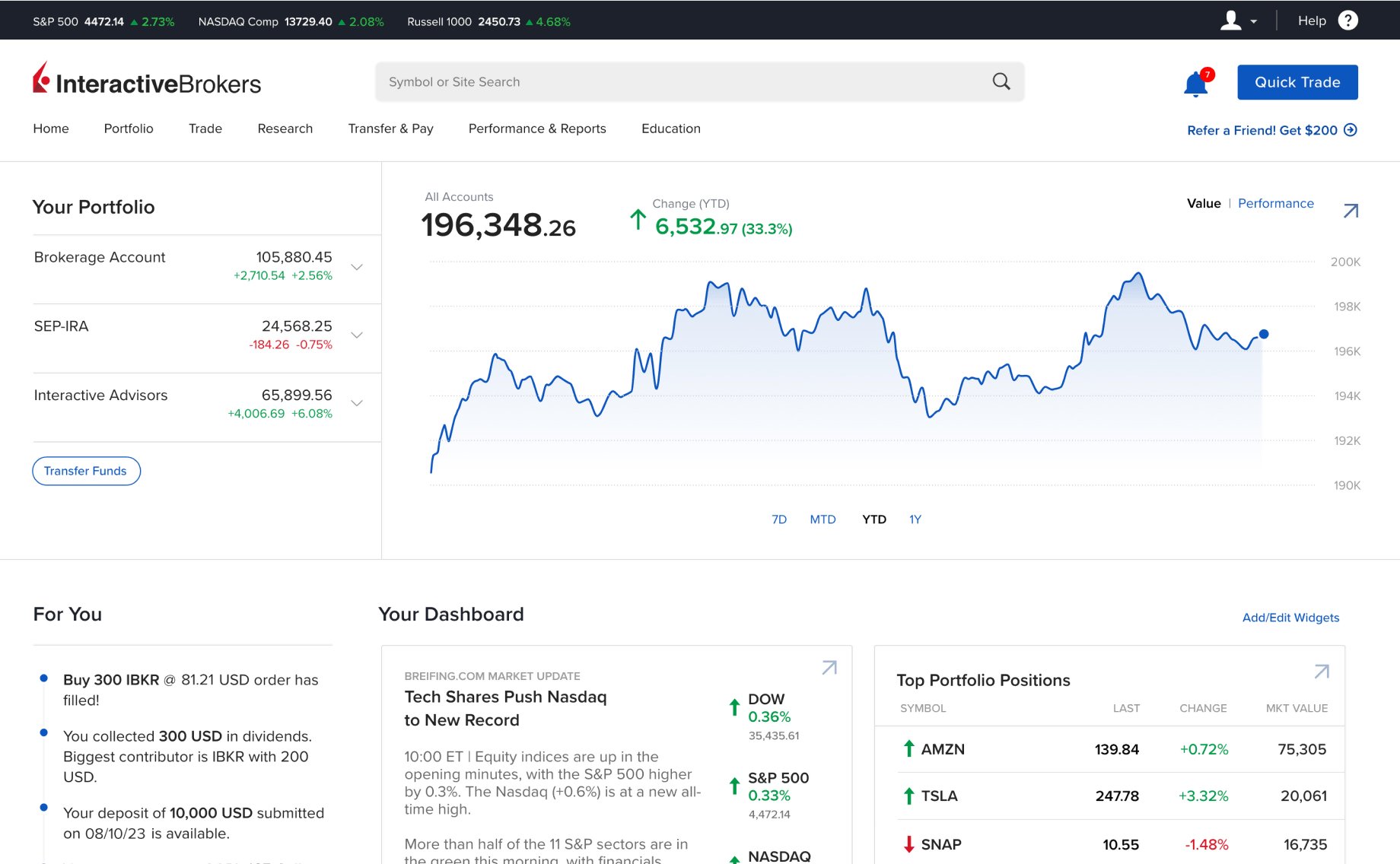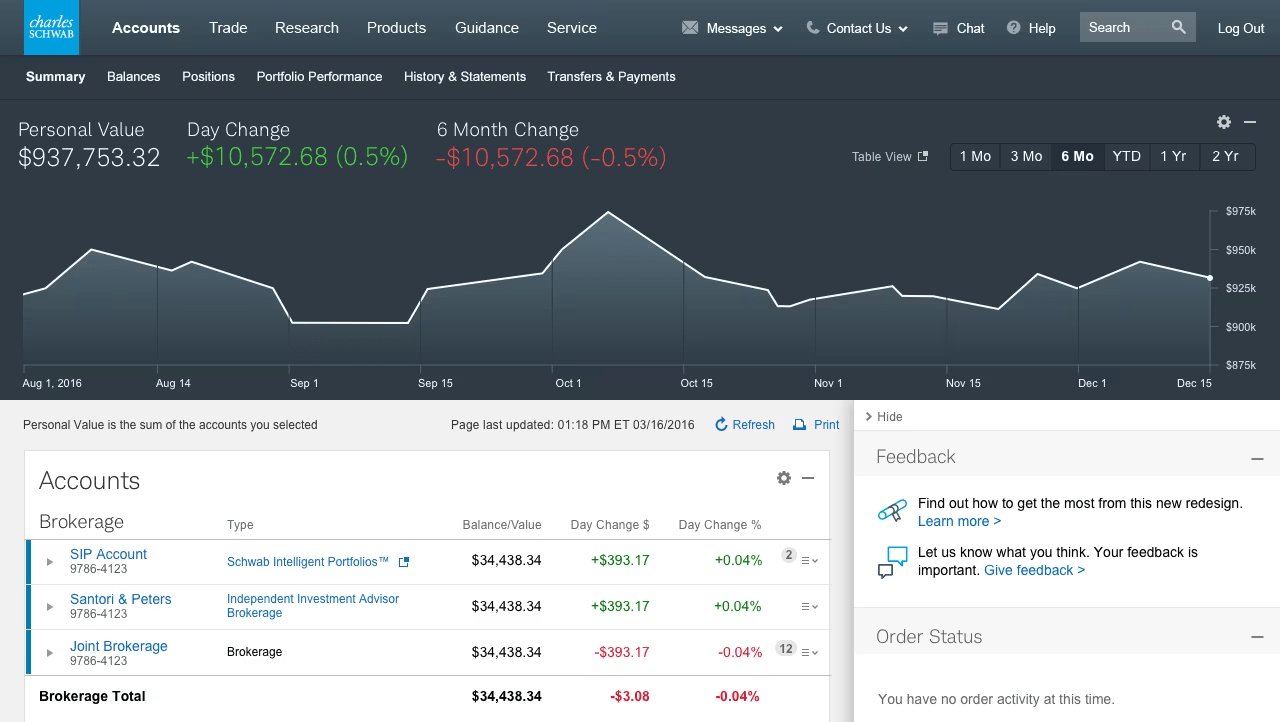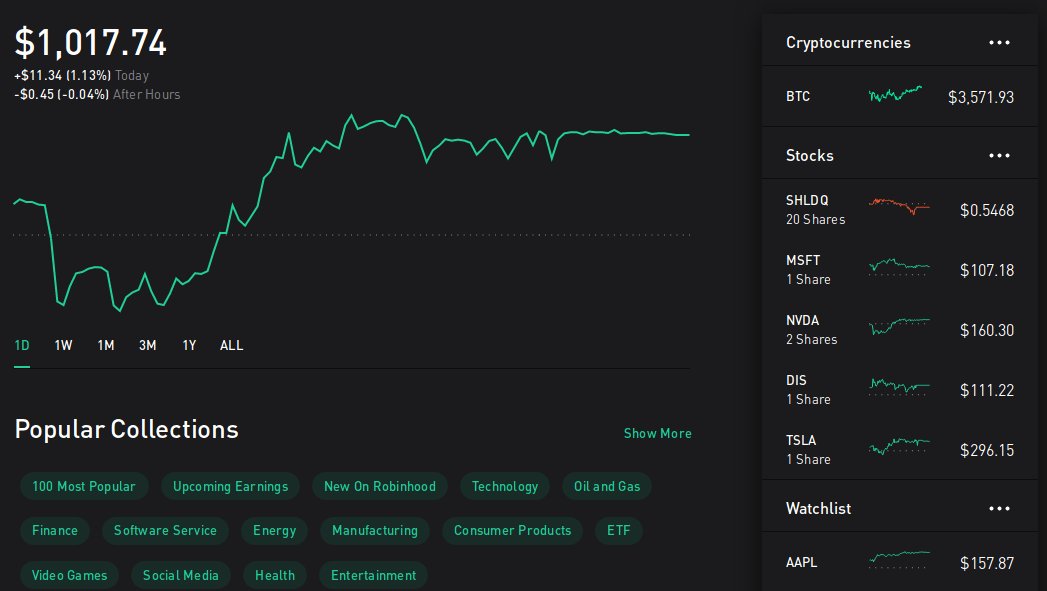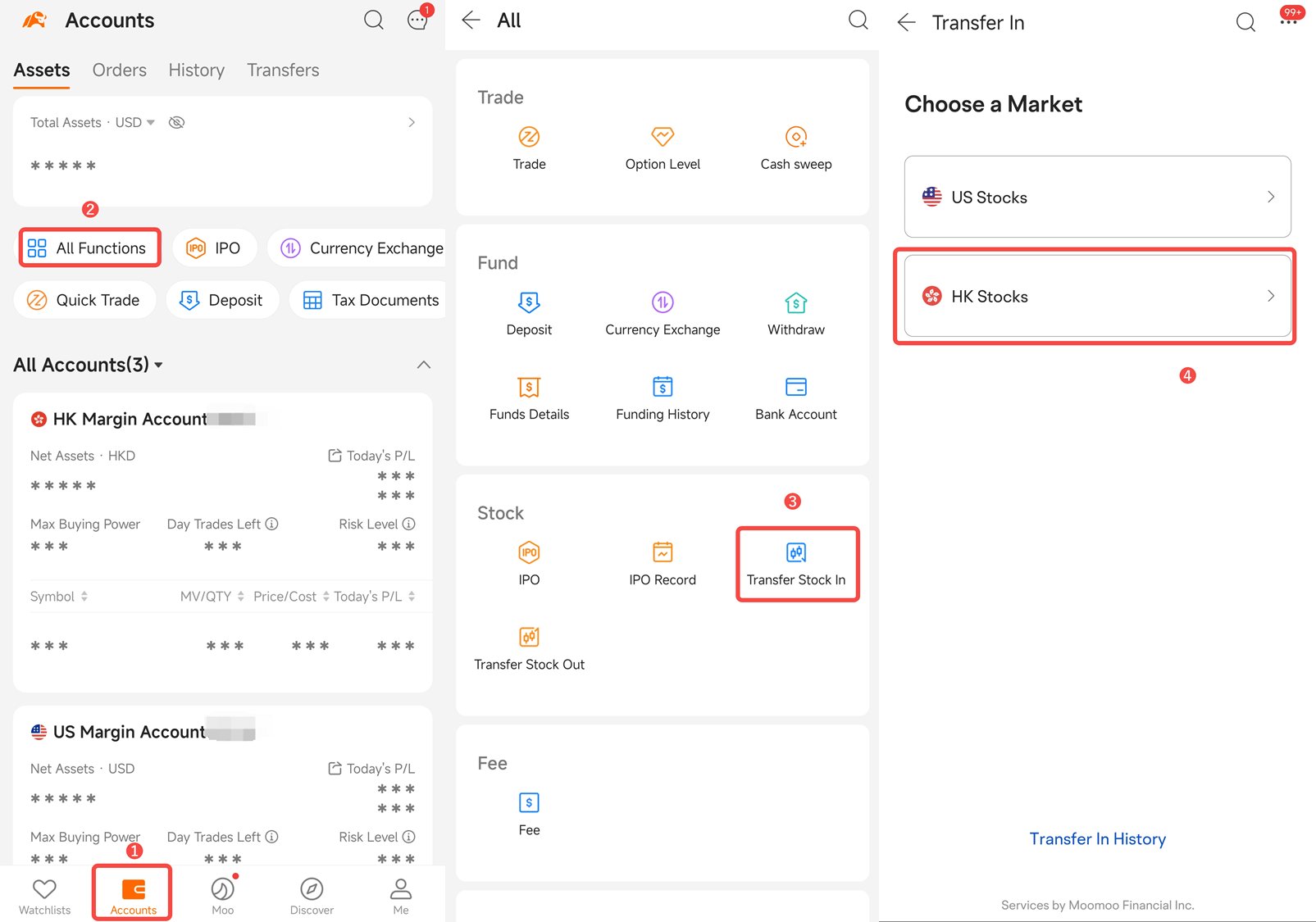The 7 Best Brokerage Accounts in 2025

Selecting a new brokerage account can be a challenge.
It's nice to have so many options to choose from, but it can be tough to sort through all the options, figure out what makes them different, and decide which one suits you best.
But don't worry — we've got you covered.
Whether you're a long-term investor or short-term trader, experienced or new to the stock market, here's our list of the top seven online brokerages.
Summary of the best brokerage accounts
| Rating | Built for | Fees* | Account minimum | |
| Public | Long-term investing | $0 per trade | $0 | |
| Fidelity | Long-term investing | $0 per trade for stocks and ETFs, $0.65 per options contract | $0 | |
| TradeStation | Trading | $0 per trade for stocks and ETFs, $0.60 per options contract | $0 | |
| Interactive Brokers | Trading | $0 per trade for stocks and ETFs, $0.65 per options contract | $0 | |
| Charles Schwab | Long-term investing | $0 per trade for stocks and ETFs, $0.65 per options contract | $0 | |
| Robinhood | Long-term investing & Trading | $0 per trade | $0 | |
| Moomoo | Trading | $0 per trade | $0 |
*Fees on U.S. stock, ETF, and options trades
1. Best for new, long-term investors: Public
- Our rating:
- Assets: Stocks, ETFs, options, fixed income, cryptocurrencies, and collectibles
- Fees: $0 per trade for stocks, ETFs, and options
If you're new to investing, Public likely has everything you need in an extremely clean and easy-to-use platform — both web and mobile app.
Public most broadly appeals to those who appreciate well-designed and simple platforms and need access to all of the most common assets.
It offers no-commission trades on stocks, ETFs, and options, no account minimum, and fractional investing.
You can also invest in corporate bonds and Treasury Bills — a rare feature for brokerages that aren't 20+ years old — and earn 4.6% interest with a high-yield cash account.
And for those interested in alternative investments like art and real estate, or other collectibles like NFTs, sneakers, and trading cards, Public allows you to invest in these assets right alongside your portfolio of traditional investments.
That said, it does have one major drawback. You cannot open any type of IRA on Public — you can only open regular brokerage accounts.
Overall though, Public has everything I need, with no added complexity. That's why it earns the top spot on this list.
For more information, check out our full Public Review.
2. Runner-up for long-term investing: Fidelity
- Our rating:
- Assets: Stocks, ETFs, mutual funds, options, fixed income, cryptocurrencies, and more
- Fees: $0 per trade for stocks and ETFs, $0.65 per options contract
Generally speaking, there are two types of online brokers.
“Legacy” brokers tend to have more assets, more account types, more retirement planning features, and have been around for decades.
“New” brokers have better technology, simpler offerings, lower costs, and are overall more user-friendly for new investors.
In my opinion, Fidelity offers the best of both worlds.
Fidelity was launched in 1946 and has long been one of the largest and most-trusted brokerages in the world. There are over 50 million investors with accounts at Fidelity and over $14 trillion invested on the platform. That doesn't happen by accident.
You can invest in thousands of different assets across global markets. You can open a regular brokerage account or multiple forms of IRAs. Fidelity also supports HSAs and 401(k) accounts.
All of these choices come with additional complexity in the web-based and mobile platforms, but both applications are easy to navigate.
There will be a slightly higher learning curve than on Public, but you may find the additional functionality to be well worth your time.
3. Best overall for trading: TradeStation
- Our rating:
- Assets: Stocks, options, futures, ETFs, and mutual funds
- Fees: $0 per trade for stocks and ETFs, $0.60 per options contract
TradeStation is my top choice for those interested in day trading or swing trading.
I have found TradeStation to have the best combination of power and user-friendliness of all trading-centric brokerages.
TradeStation's platform comes in desktop, web-based (above), and mobile form. You can also paper trade and backtest with virtual money, so you don't need to risk your own capital until you're confident in your trading strategies.
If you're new to trading, TradeStation also comes with educational materials and masterclasses in different types of trading and how to deploy various strategies.
Plus, while it may seem overwhelming at first, TradeStation is pretty easy to learn, unlike many of the other advanced trading platforms.
4. Best for experienced traders: Interactive Brokers
- Our rating:
- Assets: Stocks, options, futures, currencies, bonds, funds, commodities, cryptocurrencies, and structured products
- Fees: $0 per trade for stocks and ETFs, $0.65 per options contract
If you're an advanced trader who needs enhanced research capabilities and access to international trading, you may prefer Interactive Brokers over TradeStation.
IBKR has clients in over 200 countries and territories who can trade stocks, options, futures, currencies, bonds, funds, and more on 150 global markets. It also has hundreds of order types, advanced charting tools, real-time news, and more.
Also, for algorithmic traders, IBKR offers a suite of pre-built algorithms and a complete list of API languages. Importantly, all of these tools are available in its paper trading environment.
Clearly, IBKR is not for the faint of heart. This is a serious trading platform built for serious traders. If you don't know whether or not you need IBKR's capabilities, you probably don't.
5. Best for retirees: Charles Schwab
- Our rating:
- Assets: Stocks, ETFs, mutual funds, options, fixed income, cryptocurrencies, and more
- Fees: $0 per trade for stocks and ETFs, $0.65 per options contract
Like Fidelity, Charles Schwab has been around for decades and comes with all the benefits of a traditional legacy broker.
Also like Fidelity, Schwab has embraced the times and continued to improve its technology offerings and the user experience of its web and mobile platforms.
There are a few reasons to choose Schwab instead of Fidelity.
First, you may prefer the look and feel of Schwab's platforms over Fidelity's (personally, I prefer Fidelity's).
Second, Schwab is known for its deep suite of tools for retirement planning. Although Fidelity is also very good for this, I have to give Schwab the slight edge here.
Additionally, with its recent purchase of TD Ameritrade, Schwab added thinkorswim — a powerful trading platform that is especially useful for analyzing options trades — to its feature set.
6. Best for young investors: Robinhood
- Our rating:
- Assets: Stocks, ETFs, options, and cryptocurrencies
- Fees: $0 per trade for stocks, ETFs, and options
Robinhood is the easiest place for new investors to open a brokerage account and start investing.
While it has a web-based version, Robinhood is best known for its mobile app, which has the simplest, most user-friendly design of any broker on this list. For this reason, Robinhood is especially popular among younger (mobile-first) audiences.
You can invest in over 5,000 U.S. stocks and ETFs and over 20 cryptocurrencies on Robinhood.
Plus, its fractional share program allows you to start investing with as little as $1. New users can also get a free share of stock worth between $5–$200.
7. Best for new traders: Moomoo
- Our rating:
- Assets: Stocks, ETFs, options, Treasuries, cryptocurrencies, and collectibles
- Fees: $0 per trade for stocks, ETFs, and options
Moomoo is an up-and-coming brokerage that caters to active traders.
Like Robinhood, Moomoo has well-designed mobile and web-based applications. But they're also packed full of useful features for traders including charts, real-time news, and Level 2 data.
In addition to trading in U.S. markets, you can also invest in the Hong Kong and China-A-shares markets. Plus, Moomoo's paper trading feature allows you to practice your strategies with virtual funds, right from the same place.
Plus, for opening a new account, you can get up to 60 free shares*:
- 5 free stocks with a deposit of $100 (and maintain that balance for 60 days)
- 25 additional free stocks with a deposit of $2,000 (and maintain that balance for 60 days)
- 35 additional free stocks with a deposit of $5,000 (and maintain that balance for 60 days)
*Because of these sign-up incentives, we ranked Moomoo as having the best free stock bonus program.
How to choose a brokerage account
The first thing you need to know before choosing a brokerage account is what your needs will be as an investor or trader.
If you want to get started as a long-term investor, you'll want to choose a broker that caters to that audience. The same is true if you're a trader.
After that, you'll need to consider which assets and in what markets you're going to be investing in and make sure the brokerage you select has everything you want. The same goes for any research tools you may need.
You also want to think about what type of account you want to open. If you want to open a regular brokerage account, any brokerage firm will do.
However, not every broker offers every type of retirement account. Legacy brokerages, like Fidelity and Schwab, will have the most account types available.
Nowadays, most online brokers have very similar fee structures, so that's less of a consideration than it used to be.
How we chose the best brokerage accounts
When evaluating investing products and services, we take the following into consideration:
- Core offering: How good is the product or service? How many features it has, investment choices available, how good its data is, and how much users like it.
- Cost: Overall price and value for money.
- Usability: What the interface looks like, how easy it is to navigate, design elements and features, and general accessibility.
- Credibility: Security and overall brand reputation.
- Audience: Who the product is for, the uses and applications, whether it actually works, if it's the best option available, and any limitations therein.
- Offers: Whether there is a special offer for signing up or any discounts.
The takeaway
That's my list of the best brokerage accounts in 2025.
I have personally used every single one of the brokerages on this list (and many others) and ranked them based on my experience.
Hopefully, this article helped you find which one is best for you.




